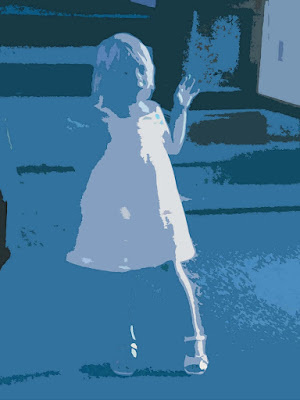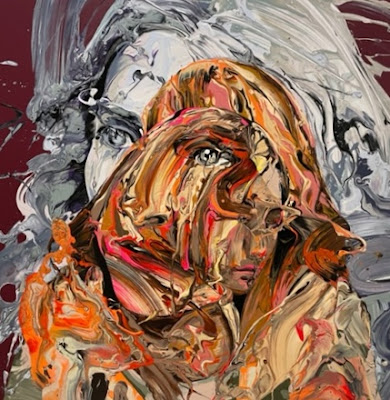The Fifth Estate is a compelling film about the emergence of Wikileaks as a global force. It's extremely well done, especially seeing Benedict Cumberbatch become Julian Assange. The film is co-written by one of the characters in the film based on a book by that self-same person, Daniel Berg. This is not a review of the film, but a handful of thoughts about journalism, stimulated by having watched this last night.
The world is full of secrets, but governments are especially shrouded in fog and veils of secrecy. If, however, government is purportedly as extension of the people, is granted power to rule by consent of the people, then how can we effectively trust them if we can't see what they are doing?
This is where journalism comes in. This is what "freedom of the press" is supposedly about. But when government agencies do really awful things and lie about it, the only way the truth gets out is for whistleblowers to call attention to these misdeeds. Unfortunately, the whistleblowers almost always pay a price for this, which can include losing one's livelihood, their standing in the community or even jail.
As Julian Assange put it, "This... really defines the essence of what we're trying to achieve. Privacy for the individual, transparency for institutions, with your personal safety as a whistleblower guaranteed through anonymity as an individual."
 |
| Daniel Domscheit-Berg |
Daniel Berg, is a German technology activist who Assange recruited to help execute his vision. After a critical leak in which Assange and the team published unredacted material that put lives in danger, Berg split from Wikileaks and wrote a book about it titled Inside WikiLeaks: My Time with Julian Assange at the World's Most Dangerous Website, which became the basis for this film, the chief criticism being that the story is slanted.The reviews are fairly mixed, but I see this as an important film because it raises good questions and addresses issues that need to be assessed.
What follows are quotes from various sources dealing with the journalistic profession.
"It takes two things to change the world and you'd be surprised how many people have good ideas. Commitment, true commitment, requires sacrifice."
--Julian Assange
Julian exposed another set of wars...what do you say to people like Chelsea Manning and Julian, who’s the principal target of the legal and judicial brutalities taking place, when they reveal stuff, which everyone knows it’s true, since some of it is on video — Americans bombing Iraqi families, totally innocent... laughing about it and are recorded killing them? That’s a big joke. Well, it isn’t a big joke for the millions who have died in the Arab world since these 20 years of war began. And Julian, far from being indicted, should actually be a hero... He should never have been kept in prison for bail. He should not be in prison now awaiting a trial for extradition. He should be released. --Tariq Ali
You have to start with the truth. The truth is the only way that we can get anywhere. Because any decision-making that is based upon lies or ignorance can't lead to a good conclusion.
--Julian Assange
WikiLeaks... published nearly 400,000 field reports about the Iraq War, which contained evidence of U.S. war crimes, over 15,000 previously unreported deaths of Iraqi civilians, and the systematic murder, torture, rape and abuse by the Iraqi army and authorities that were ignored by U.S. forces.
--Marjorie Cohn
If Julian is to be prosecuted, then there’s an equally good case for the editor and journalists in The Guardian... New York Times, Der Spiegel, El País, La República and all the other organizations involved in this coverage being prosecuted, too. Obama, in spite of his liberal background, failed to stand up to the pressure from the intelligence agencies, and he used the draconian 1917 Espionage Act and other laws against whistleblowers and journalists. In fact, Obama was responsible for more prosecutions and action against journalists and whistleblowers than all the other presidents in the U.S. combined.
--Ewen MacAskill
The fat Russian agent was cornering all the foreign refugees in turn and explaining plausibly that this whole affair was an Anarchist plot. I watched him with some interest, for it was the first time that I had seen a person whose profession was telling lies—unless one counts journalists.
Secretive power loathes journalists who do their job: who push back screens, peer behind façades, lift rocks. Opprobrium from on high is their badge of honour.
--John Pilger
Journalists can help people by telling the truth, or by as much truth as they can find, and acting not as agents of governments, of power, but of people. That is real journalism. The rest is specious and false.
It was a fatal day when the public discovered that the pen is mightier than the paving-stone, and can be made as offensive as the brickbat. They at once sought for the journalist, found him, developed him, and made him their industrious and well-paid servant. It is greatly to be regretted, for both their sakes. Behind the barricade there may be much that is noble and heroic. But what is there behind the leading-article but prejudice, stupidity, cant, and twaddle? And when these four are joined together they make a terrible force, and constitute the new authority.
Today's quotes were prompted by the following statement from an article on Medium. It has nothing to do with The Fifth Estate, but makes a thoughtful contribution to what is being stirred here.
"What prompted me to journal for the first time in so long is the sense that I was hitting a new inflection point. I felt that the density of my personality had deteriorated. My inner life as of late has only one or two tempos. A full orchestra became just one oboe, and a viola. The cellos are gone, as well as the French horns."
--Timothy Kim, [journals] 11-26-2021
* * * *
Trivia: Julian Assange contacted Cumberbatch and tried to dissuade him from being in the film.
Trivia: On September 18 2013, Wikileaks released a mature version of the complete script to the public, because "the film is, from WikiLeaks' perspective, irresponsible, counterproductive and harmful." They also published a "Talking Points" memo "because it represents a frank internal appraisal of [the film] and what is wrong with it."
Statement from one of the reviewers on imdb.com:
"It seems like so much of what we hear today, from politicians and celebrities and publicists is 'spin.' And most of us are aware that there's more than they're telling us."
Feedback welcome. This is intended as a conversation starter. Feel free to comment.
.jpg)























.jpg)









